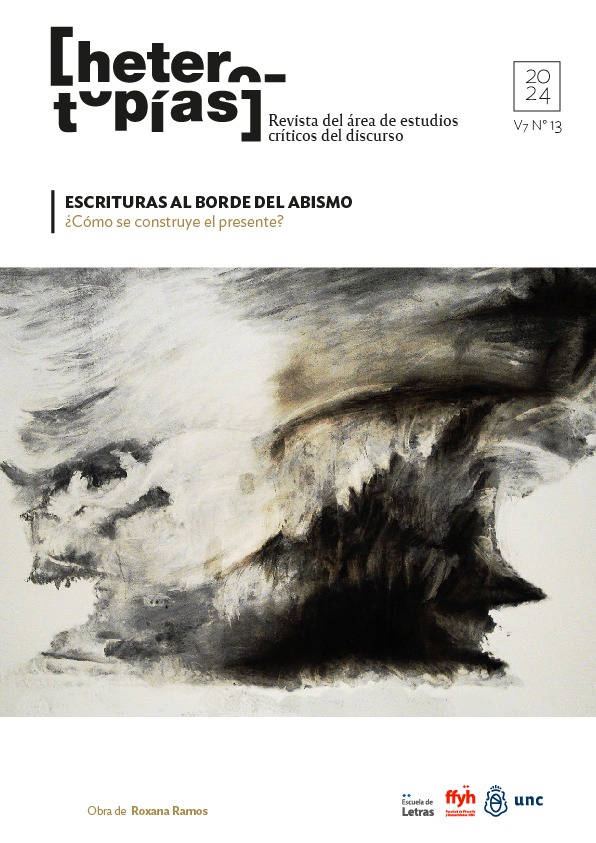Against Bafflement. Notes on Listening
Main Article Content
Abstract
This essay seeks to perform an aesthetic exploration on the relations between listening and crisis of hegemony. It is based on the premise that every crisis of hegemony is a crisis of listening. This inflection is a radical temporal dislocation: the present of listening is always divided and multiplied (Nancy.) It is made of splintered times, of traces that come from different pasts. This temporal proliferation is important: it speaks of forms of memory that never quite fit into any politics of memory. To interrogate the very practice of listening can help us, then, to work on these memories precisely at a time of active war against all forms of collective memory. The essay situates the practice of listening not as personal testimony but as critical work--that is: as a work of reorientation (LaBelle) in the midst of the ongoing cultural and political mutation.
Downloads
Article Details

This work is licensed under a Creative Commons Attribution-NonCommercial-ShareAlike 4.0 International License.
Those authors who have publications with this journal, accept the following terms: Those authors who have publications with this journal, accept the following terms:
a. The authors will keep their copyright and guarantee to the journal the right of first publication of their work, which will be simultaneously subject to the Creative Commons Attribution - Non-Commercial - Share Alike (by-nc-sa) Attribution License; no commercial use of the original work or any derivative works is allowed, the distribution of which must be done with a license equal to the one that regulates the original work.
b. Authors may adopt other non-exclusive license agreements for the distribution of the published version of the work (e.g., deposit it in an institutional telematic archive or publish it in a monographic volume) provided that the initial publication in this journal is indicated.
c. Authors are allowed and recommended to disseminate their work through the Internet (e.g. in institutional telematic archives or on their website) before and during the submission process, which may lead to interesting exchanges and increase the number of citations of the published work. (See The effect of open access).
How to Cite
References
Ahmed, Sarah (2006) Queer Phenomenology. Orientations, Objects, Others, Durham, Duke UP. Connor, Steve (1996) “The Modern Auditory I”, en Porter, Roy, Rewriting the Self. From the Middle Ages to the Present, London, Routledge.
LaBelle, Brandon (2021) Acoustic Justice. Listening, Performativity, and the Work of Reorientation Bloomsbury Academic, New York & London.
Lazzarato, Maurizio (2023) El imperialismo del dólar. Buenos Aires, Tinta Limón.
Toha, Mosab Abu (2022) Things You May Find Hidden in My Ear: Poems from Gaza. City Lights Publishers.
Zelko, Dani. “Reunión”. https://reunionreunion.com/
